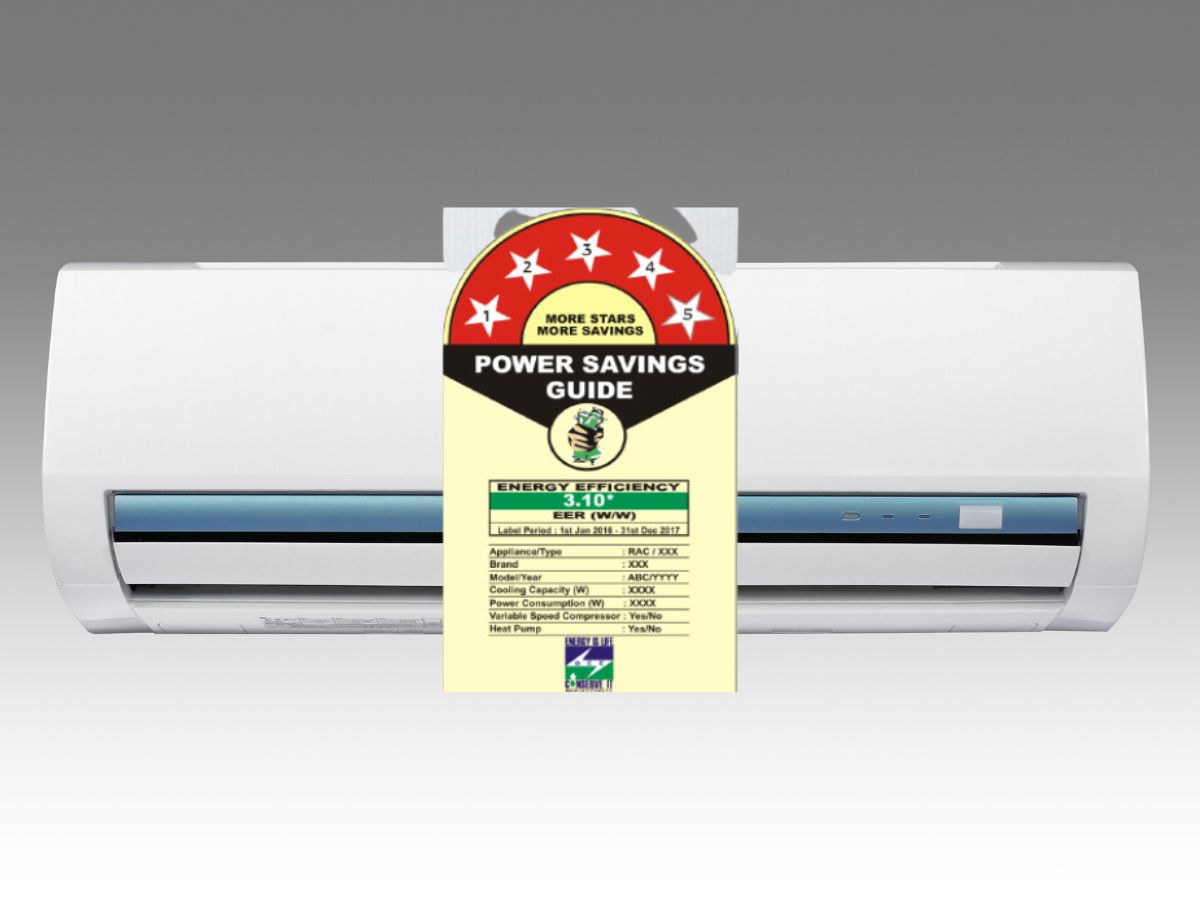BEE's Star Labelling Program boosts split AC energy efficiency
India’s energy efficiency policies have not only led to improvement in overall energy efficiency of Air-Conditioners but also accelerated the deployment of highly Energy Efficient inverter technology. As per the data from the Bureau of Energy Efficiency (BEE), Ministry of Power, for split Room Air-Conditioners (RACs)

BEE's Star Labelling Program boosts split AC energy efficiency
NEW DELHI- India’s energy efficiency policies have not only led to improvement in overall energy efficiency of Air-Conditioners but also accelerated the deployment of highly Energy Efficient inverter technology. As per the data from the Bureau of Energy Efficiency (BEE), Ministry of Power, for split Room Air-Conditioners (RACs), the overall energy efficiency improvement is 43% for 1-Star and 61% for the 5-Star level. On the other hand, the overall energy efficiency improvement for window RACs is 17% for 1-Star and 13% for 5-Star level.
The interventions by the Central Government have also led to increase in the market share of the more efficient, Inverter RACs. In 2015, the market share of variable speed (commonly known as inverter) RACs was less than 1% in the overall RAC market size of 4.7 million units. In June, 2015, BEE introduced a voluntary labelling program for Inverter RACs with a new star rating methodology called Indian Seasonal Energy Efficiency Ratio (ISEER) which was made mandatory from January 2018.
During the eight years from 2015-16 to 2022-23, the market share of the more efficient, variable speed (Inverter) RACs increased from 1% to 77%, while that of the fixed speed RAC, reduced from 99% to 23% during the same period. The overall market for RACs reached 6.6 million units by 2020-21. This market transformation towards efficient technology was possible due to adoption of variable speed (Inverter) RAC policy, which offers benefits to the consumers in terms of electricity and cost saving.
These interventions are part of the India Cooling Action Plan (ICAP), which aims to provide an integrated vision towards cooling across sectors encompassing inter alia reduction of cooling demand, refrigerant transition, enhancing energy efficiency and better technology options with a 20-year time horizon.
Responding to the progress made in implementation of the Star Labelling program, Shri Alok Kumar, Secretary, Ministry of Power said that program is achieving its intended outcomes. He added that the Indian economy is growing at a rapid pace and so the demand for cooling is going to increase multi-fold over next few decades. Under ICAP, a detailed action plan has been chalked out. This will ensure that while we cater to our development needs, we do it in an efficient manner. Shri Abhay Bakre, DG, BEE said that the ICAP is a comprehensive plan covering all sectors and the government is committed to successfully implementing the ICAP.
BEE has been revising the star rating plans for split and window RACs to increase the stringency of the energy performance thresholds.
Join PSU Connect on WhatsApp now for quick updates! Click here
 Read Also : Farewell to Shri Praveen Anantrao Pandey, Executive Director of NTPC Tapovan Vishnugad
Read Also : Farewell to Shri Praveen Anantrao Pandey, Executive Director of NTPC Tapovan Vishnugad
These interventions are part of the India Cooling Action Plan (ICAP), which aims to provide an integrated vision towards cooling across sectors encompassing inter alia reduction of cooling demand, refrigerant transition, enhancing energy efficiency and better technology options with a 20-year time horizon.
Responding to the progress made in implementation of the Star Labelling program, Shri Alok Kumar, Secretary, Ministry of Power said that program is achieving its intended outcomes. He added that the Indian economy is growing at a rapid pace and so the demand for cooling is going to increase multi-fold over next few decades. Under ICAP, a detailed action plan has been chalked out. This will ensure that while we cater to our development needs, we do it in an efficient manner. Shri Abhay Bakre, DG, BEE said that the ICAP is a comprehensive plan covering all sectors and the government is committed to successfully implementing the ICAP.
BEE has been revising the star rating plans for split and window RACs to increase the stringency of the energy performance thresholds.
Read Also : Minister Satish Chandra Dubey inaugurates new Continuous Miner during his SECL VisitBackground
The Bureau of Energy Efficiency (BEE) launched the Star Labelling program for fixed-speed Room Air Conditioners (RACs) in 2006 as a voluntary initiative, and the program became mandatory in 2009. BEE revised the energy performance thresholds (Minimum Energy Performance Standard-MEP) for RACs covered under the program on a biennial basis from 2009 - 2018.
In 2015, BEE launched a voluntary labelling program for inverter RACs, and made the program mandatory in January, 2018. The labelling program for RACs now covers both fixed and inverter units under the same labelling scheme. The split AC rating plan also includes the cassette and floor standing/ceiling mounted type RACs.
The efficiency of a RAC is defined in terms of the Energy Efficiency Ratio (EER), which is the ratio of the cooling output (in Watts) to the total power input (in Watts) at standard rating conditions. This means the higher the EER, the more efficient the air conditioner. In 2018, BEE adopted an improved rating methodology that factors in variance in temperature across the various climatic zones in India and operating hours. The new metric is called the Indian Seasonal Energy Efficiency Ratio (ISEER), which is the ratio of the cooling seasonal total load (in kWh) to cooling seasonal energy consumption (in kWh).
- The existing energy performance norms for RAC were notified under mandatory regime in the year 2018. The initial validity period for these norms was 1st January, 2018 to 31st December, 2019.
- Further, in the year 2019, the standards were extended by a period of 1 year beyond 31st December, 2019 in lieu of lack of market readiness for the new standards. Therefore, the revised validity period for these norms was changed as 1st January, 2018 to 31st December, 2020.
- During 2020, in lieu of the impacts of COVID-19 on RAC industry, BEE further extended the validity of these norms at first by a period of 1 year beyond 31st December, 2020 to 31st December, 2021 and then by 6 months to 30th June, 2022.
- Subsequently, the revised star rating tables were made applicable to unitary and Split type ACs with effect from 1st July 2022.The current validity period is 1st July 2022 to 31st December 2024.
